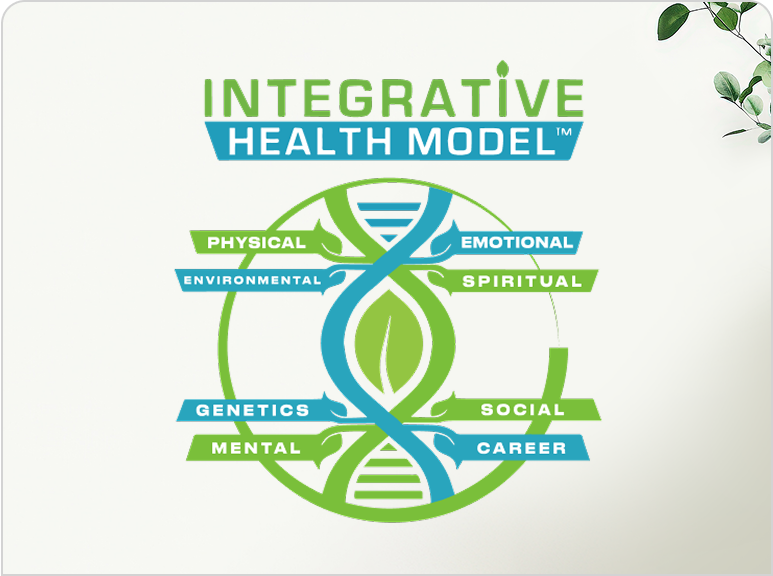How Does Genetic Screening Work?

Genetic screening is a medical test that involves examining your DNA and identifies changes in your genes. Genetic screening can help you make informed health decisions, but how does genetic screening work?

What is Genetic Screening?
A genetic test is a medical procedure that identifies changes in your genes, chromosomes, and proteins. A genetic test is a way to determine your chances of developing certain diseases by examining the genes in your body.
Genetic screening is usually done using blood or saliva samples but sometimes requires an operation where doctors take some cells from inside one's cheek.
What Diseases Can Be Detected Through Genetic Testing?
Genetic testing can identify a wide range of diseases, from single-gene disorders to complex conditions influenced by multiple genes. Examples include cystic fibrosis, sickle cell anemia, and Huntington’s disease, all of which are caused by mutations in specific genes. Testing can also detect predispositions to cancers such as breast cancer (BRCA1/BRCA2 mutations), colon cancer, and prostate cancer.
Additionally, genetic testing helps diagnose metabolic conditions like phenylketonuria (PKU) and endocrine disorders such as congenital hypothyroidism. These tests are invaluable for early diagnosis, enabling effective management and intervention strategies that can significantly improve patient outcomes.
How Does Genetic Screening Work?
A genetic test is performed on a sample of blood, hair, or skin. The technician looks for specific changes in chromosomes, DNA, and proteins that may indicate an illness.
Procedure for Genetic Screening
Genetic screening involves several precise steps to ensure accurate results. Each stage, from sample collection to result interpretation, is crucial in providing a comprehensive view of a person’s genetic health. Understanding the process can help ease any concerns and clarify what to expect.
1. Sample Collection:
The first step is collecting a biological sample, which can include blood, saliva, hair, or skin cells. Blood samples are the most common, as they provide a rich source of genetic material for analysis. For some types of testing, such as prenatal screening, amniotic fluid is collected to analyze fetal DNA. In certain cases, a buccal smear—using a cotton swab to collect cells from the inside of the cheek—is performed if a less invasive method is preferred.
2. Laboratory Analysis:
Once the sample is collected, it’s sent to a laboratory for detailed analysis. In the lab, technicians isolate DNA or RNA from the cells and examine it for specific genetic markers, chromosomal changes, or protein variations. Depending on the type of genetic screening, different techniques such as DNA sequencing or polymerase chain reaction (PCR) are used to detect mutations or anomalies. This stage is critical for identifying the presence or absence of genetic changes that may be associated with specific conditions.
3. Sequencing and Detection:
In the sequencing phase, the lab uses specialized equipment to read the sequence of nucleotides (the building blocks of DNA) in the sample. This process can identify minute genetic changes, including single nucleotide polymorphisms (SNPs) or large chromosomal abnormalities. Each sequence is compared against a reference genome to pinpoint any variations that could indicate a genetic disorder or increased disease risk.
4. Data Interpretation and Reporting:
After the sequencing is completed, the data is analyzed by geneticists or specialized software to interpret what these variations mean. The results are compiled into a detailed report, highlighting any significant findings and their potential health implications. In some cases, genetic counselors are involved to explain the results, discuss their relevance, and provide guidance on next steps.
5. Genetic Counseling:
The final stage involves genetic counseling, where healthcare providers review the results with the patient. This discussion helps clarify what the findings mean for the individual's health or family planning. Genetic counselors can also address any emotional concerns, as well as suggest further testing or preventive measures based on the results.
Understanding the entire procedure of genetic screening—from sample collection to counseling—provides a clearer picture of what to expect, making the process more transparent and approachable.
What are the Types of Genetic Screening?
There are several types of genetic screening, including:
- Diagnostic testing
- Predictive testing
- Carrier testing
- Newborn screening
- Preimplantation testing
- Pharmacogenetics
Detailed Types of Genetic Screening
Genetic screening includes several types of tests, each serving a unique purpose. These tests provide insights into various genetic aspects—whether confirming a diagnosis, evaluating future health risks, or identifying carriers of genetic disorders. Here’s a closer look at the main types:
1. Diagnostic Testing:
Diagnostic testing is used when an individual shows symptoms of a genetic disorder. For instance, cystic fibrosis and Huntington’s disease are commonly diagnosed using this method. This testing type helps confirm a suspected diagnosis, which guides healthcare providers in developing effective treatment plans. With cystic fibrosis affecting over 30,000 people in the U.S., early diagnosis is critical for managing symptoms and improving quality of life.
2. Predictive Testing:
Predictive testing assesses the likelihood of developing a genetic condition in the future. It is particularly useful for identifying hereditary conditions like BRCA1 and BRCA2 mutations, which elevate breast cancer risk. Women with these mutations have up to a 72% lifetime risk of developing breast cancer, compared to a 12% risk in the general population. Knowing this information allows individuals to take proactive measures, such as increased screening or preventive surgeries.
3. Carrier Testing:
Carrier testing is recommended for individuals or couples with a family history of genetic disorders. It determines if a person carries a gene mutation for a recessive condition like sickle cell anemia or Tay-Sachs disease. Although carriers usually don’t show symptoms, two carriers have a 25% chance of passing the condition to their child. This information can guide family planning decisions and the need for further testing.
4. Newborn Screening:
Newborn screening is a routine procedure conducted within the first few days after birth. This test detects serious genetic or metabolic disorders, such as phenylketonuria (PKU). Early detection is crucial as it allows for immediate intervention, reducing the risk of severe complications. In the U.S., newborn screening varies by state but typically covers conditions like cystic fibrosis, sickle cell disease, and congenital hypothyroidism.
5. Preimplantation Genetic Testing:
Preimplantation genetic testing (PGT) is used during in vitro fertilization (IVF). It screens embryos for genetic abnormalities before they are implanted in the uterus. This testing is particularly beneficial for couples with a history of genetic disorders or recurrent miscarriages. By identifying healthy embryos, PGT can increase the chances of a successful pregnancy and reduce the risk of passing on genetic conditions.
6. Pharmacogenetic Testing:
Pharmacogenetic testing examines how a person’s genes affect their response to specific medications. This type of screening helps in selecting the right medication and dosage, minimizing adverse drug reactions. For example, genetic variants can influence how patients metabolize warfarin, a common blood thinner. Testing for these variants allows doctors to prescribe a dosage that is both safe and effective, tailored to the patient’s genetic profile.
By understanding these types of genetic screening, individuals can make more informed healthcare decisions. Each test offers valuable information, helping both patients and doctors navigate the complexities of genetic health with confidence.
What are the Benefits of Genetic Screening?
Genetic screening offers several benefits, including:
- Providing accurate diagnosis and eliminating the need for several checkups
- Helping your doctor choose the most suitable therapy for you
- Offering relief concerning your health uncertainties
- Newborn screening can help you identity disorders in your baby’s health and begin treatments as soon as possible
- Helping you make informed decisions about your medical future
Genetic Test Price
The cost of genetic testing varies widely based on the type and complexity of the test. Basic single-gene tests may cost between $100 and $500, while more comprehensive tests like whole genome sequencing can range from $1,000 to $3,000. Specialized tests, such as those used for pharmacogenetics or cancer panels, may exceed $5,000.
Factors affecting price include the laboratory performing the test, the technology used, and whether genetic counseling is included. While insurance may cover some genetic tests, it’s important to verify coverage beforehand, as out-of-pocket expenses can be significant depending on the specific test and patient circumstances.
Is Genetic Screening Safe?
Genetic tests are safe with minimal to no physical risks.
Take the Next Step
Want to learn more about genetic screening? Kindly schedule a consultation with Dr. Doug Cutler and his team of expert naturopathic providers. Call us at (248) 663-0165 today! Cutler Integrative Medicine is dedicated to your health and wellbeing.
Cutler Integrative Medicine is a premier award-winning wellness clinic that provides patients with unparalleled individualized naturopathic healthcare. Dr. Doug Cutler is a national expert in Naturopathic medicine and has the highest training in his field, as well as in Environmental Medicine, IV Nutrient Therapy, and Detoxification.
You May Also Like




.png)

.png)



%201.png)



.png)

.png)



.png)
.png)
.png)
.png)
.png)
.png)
.png)
.png)

.png)
.png)
.png)
.png)

.png)
.png)

.png)
.png)






.png)




.png)
.png)
.png)

.png)

.png)